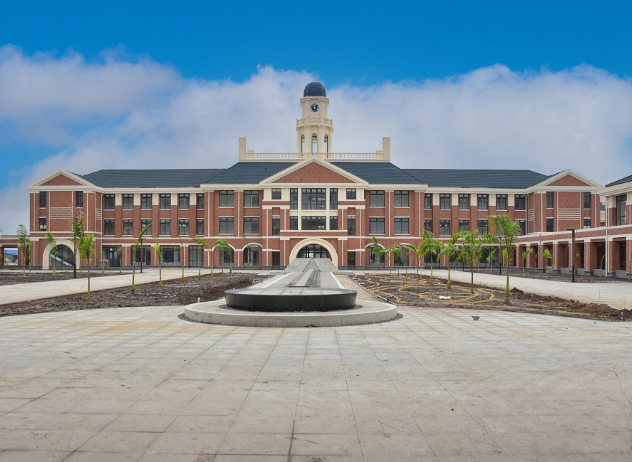The recent opening of Charterhouse Lagos, the first African branch of the prestigious 400-year-old British independent school, has ignited a firestorm of controversy on Nigerian social media, primarily centered on the institution’s hefty tuition fees. While the school claims fees are less than N30 million annually, including tuition and boarding, earlier reports suggested a staggering N42 million per year, coupled with a N2 million non-refundable registration fee. This discrepancy, along with the sheer magnitude of the cost, has fueled public debate about educational accessibility, equity, and the widening gap between Nigeria’s socioeconomic classes. The controversy underscores the tension between providing elite education and ensuring educational opportunities for all children, a fundamental right enshrined in the concept of universal basic education. The heart of the debate lies in whether such exorbitant fees are justifiable in a nation grappling with significant economic disparities.
A video showcasing the school’s facilities, shared on X.com (formerly Twitter), reignited the controversy, drawing thousands of interactions and a barrage of criticism. Many Nigerians expressed outrage, arguing that such fees are beyond the reach of average families and contribute to an educational system that privileges the wealthy elite. The perception that education is becoming a luxury commodity, accessible only to a select few, has sparked calls for government regulation of school fees to ensure a more level playing field. Critics argue that unchecked private school fees exacerbate social inequalities, hindering the nation’s progress toward achieving standardized universal basic education. The debate highlights the challenging balance between allowing market forces to determine pricing and ensuring that education remains a fundamental right accessible to all, regardless of socioeconomic background.
Adding fuel to the fire were details about the school’s boarding arrangements. Despite the exorbitant fees, students are expected to share rooms with three others, albeit with individual beds and personal space. This revelation triggered further criticism, with many questioning the value proposition of such expensive accommodation. Critics argue that for the price paid, individual rooms or at least double occupancy should be the standard. This aspect of the controversy underscores the perceived disconnect between the high cost of attendance and the actual amenities provided, raising concerns about potential profiteering at the expense of parents seeking a quality education for their children. The boarding arrangement controversy further reinforces the public perception that the school caters exclusively to a privileged minority, insensitive to the economic realities of most Nigerian families.
Proponents of Charterhouse, however, defend the school’s pricing structure, arguing that it caters to a specific niche market – affluent families and expatriates – who can afford the premium fees. They contend that the school offers more than just academics, providing valuable networking opportunities and connections that can benefit students in the future. This perspective frames the high cost of attendance as an investment not only in education but also in future prospects and overall personal growth. They argue that market forces should dictate pricing and that the school has the right to target a specific demographic that values its unique offerings. This argument, however, fails to address the broader concerns about educational inequality and the societal implications of creating an education system accessible only to the privileged few.
Charterhouse’s website outlines a tiered fee structure for founding students, with tuition ranging from N16.1 million for Years 1-2 to N24 million for Year 9. Additional costs include weekly boarding at N5 million and full boarding at N7 million per year. This detailed breakdown of fees, while providing transparency, does little to quell the public outcry. The tiered structure, while perhaps intended to offer some level of affordability, still places the school firmly outside the reach of most Nigerian families. The substantial additional costs for boarding further contribute to the perception of exclusivity and reinforce the argument that the school primarily targets the wealthy elite. The tiered structure, while seemingly offering options, doesn’t fundamentally alter the narrative of exorbitant fees and limited accessibility.
In an attempt to clarify the fee controversy, John Todd, the Founding Head and Director of Education at Charterhouse Lagos, addressed earlier reports of N42 million annual fees, asserting that the current fee is N26 million. He vehemently denied ever charging the higher figure. However, this clarification only marginally addresses the core issue of affordability. Even at N26 million, the fees remain significantly higher than what most Nigerian families can afford. While the clarification attempts to correct misinformation, it fails to address the underlying public concern about the exorbitant cost of education at the institution. The public debate continues to center on the broader issue of accessibility and the growing disparity between the educational opportunities available to the wealthy and the rest of the population. The controversy surrounding Charterhouse Lagos underscores the complex challenges facing Nigeria’s education system and the urgent need for policies that promote equitable access to quality education for all children.














